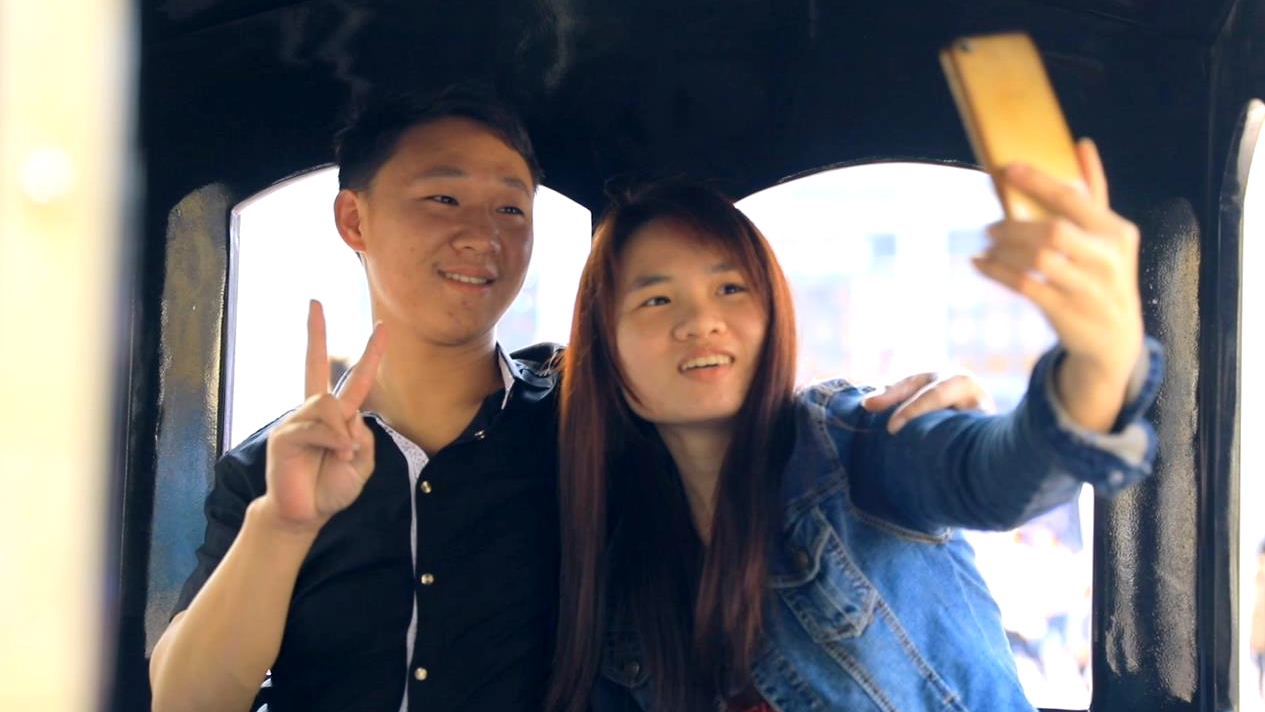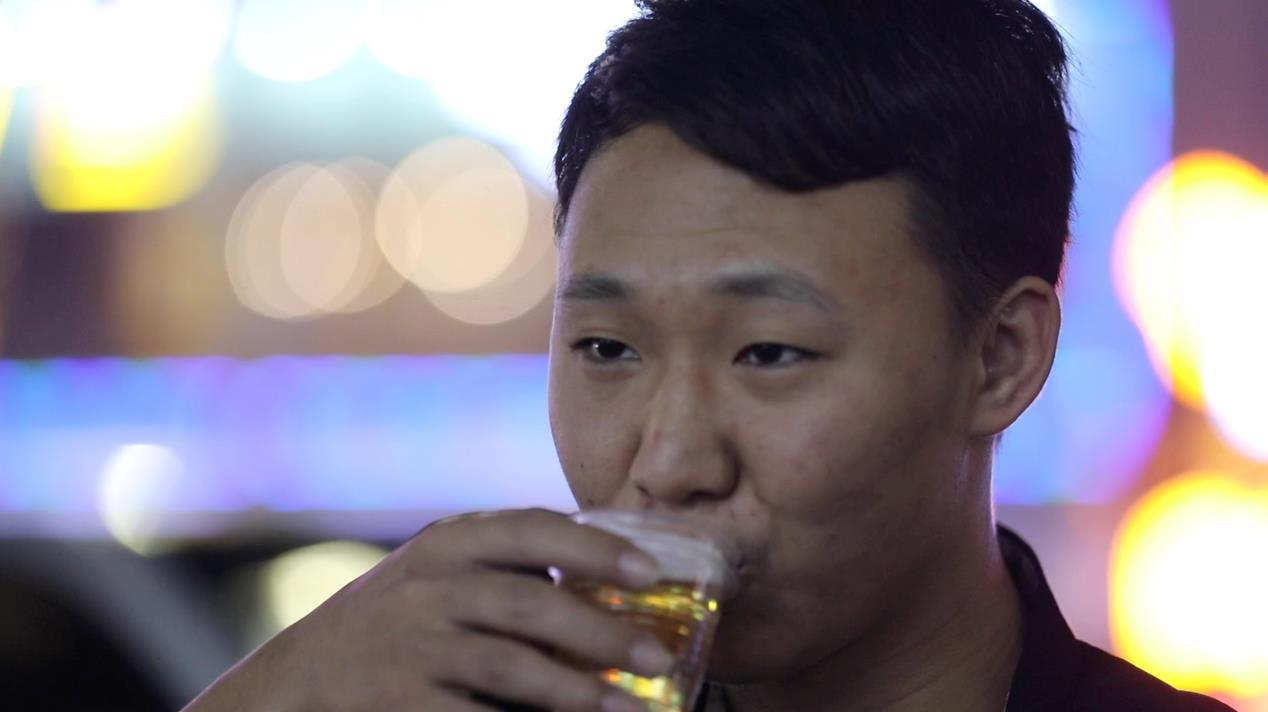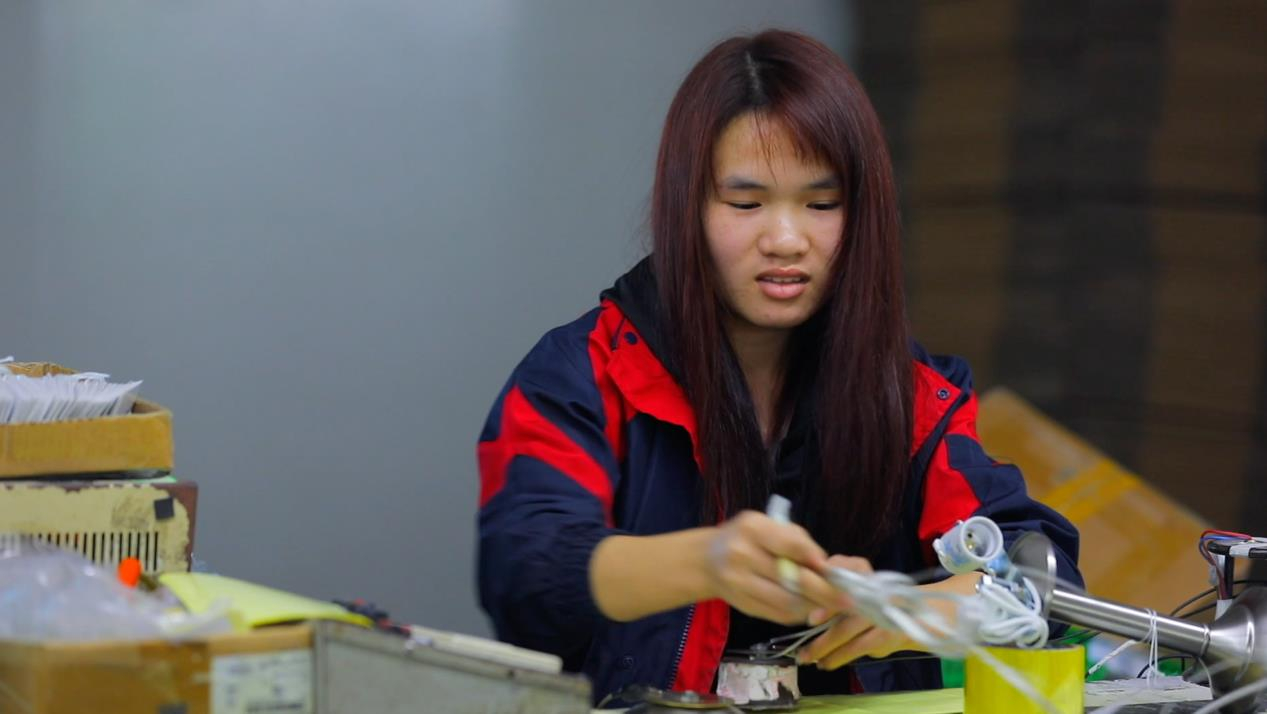
Lifestyle
11:48, 14-Dec-2018
Real Time China: A love story between migrant workers in Dongguan
Updated
11:28, 17-Dec-2018
By Ge Yunfei
04:59

It's estimated that over six million migrant workers work in Dongguan, a manufacturing hub producing clothes, toys and electronic devices.
Bai Jinying and her husband Wang Shaojun are among the six million.
The two 23-year-olds have been married for two years. They live in a 10-square-meter apartment with a rent of only 200 yuan or or about 30 U.S. dollars, a month.
The two work a lamp factory. Wang is a technician drawing lamp prototypes. Bai is a quality inspector on the assembly line, checking thousands of lamps every day.
Six years ago, Wang left his hometown – a small village in southwest China's Sichuan Province, and an important source of China's migrant workforce.
The 17-year-old young man dropped out of school and headed for Dongguan, with hopes of finding opportunities to change his life.

Wang Shaojun, a migrant worker in Dongguan. /CGTN Photo
Wang Shaojun, a migrant worker in Dongguan. /CGTN Photo
There he met Bai, a girl from the countryside in southern Guangdong Province, also looking for a chance in Dongguan. With similar backgrounds and similar goals, their relationship swiftly blossomed.
Bai firmly believes that she found her soulmate: “Happiness instead of distance is what really matters. This boy was really good for me. He would give his everything to me. He told me that my happiness is his happiness.” She defended her love in front of her parents.
Not as bustling as Guangzhou or Shenzhen, Dongguan, with a population of over eight million, still has a lot more to offer compared to the small villages that many migrant workers come from.
Though urban life has expanded the horizon for millions of migrant workers like Wang and Bai, that doesn't mean they have the luxury to enjoy the lifestyle.
Wang's parents still work on a boat delivering goods along the Yangtze River. Bai has to support her sister's education and her parents whose incomes aren't stable.
Wang said, “I hope I can work harder, and I believe in one saying, 'work ourselves to death until we're really dead.'”

Bai Jinying is a quality inspector at a lamp factory. /CGTN Photo
Bai Jinying is a quality inspector at a lamp factory. /CGTN Photo
For the young couple, the only family time is at night after work when they talk their daughter Xiaoru. Xiaoru has lived with her grandparents in Sichuan Province ever since her birth. The couple only sees her once a year during the Spring Festival holiday.
“I really miss her a lot. It really hurt me and made me want to cry when I saw she had a cold,” said Bai.
But they cannot afford to bring her with them. Like the majority of migrant parents, 12 hours in the factory deprives them of the time needed to take care of a child. Raising a child in the city is expensive considering their wages. And the gravest challenge confronting migrant parents who want to move with their children with them is the rigid hukou system.
The hukou system, which was introduced in the 1950s, restricts access to public services to one's hometown.
When they move out of their hometown, the right of children to claim equally subsidized education and healthcare is denied, as they are supposed to attain these services from their hometown. Most of these migrant children are sent to private schools, which are often unlicensed.

The young couple in an amusement park. /CGTN photo
The young couple in an amusement park. /CGTN photo
Fortunately, things are changing with the accelerating pace of reform. China's government has announced a goal of expanding urban hukou or residency permits for 100 million migrant workers by 2020.
In fact, as second-generation migrant workers, Wang was born in Dongguan but was also raised in his parents' village. But he doesn't want this cycle of migration to continue.
“In 10 years, I want to move back to my hometown,” said Wang Shao Jun.
“It's gradually developing and the government has lots of preferential policies. Maybe I would open a small store, or raise some pigs or chickens. Then all my family can be together. That's what I've always wanted."
The young couple's wish is very simple – to create a better life for their child. That's exactly the same wish that has been pushing millions of migrant workers to Dongguan over the past four decades.
(Liu Bo, Huang Xin and Liang Qipeng also contributed to the story.)

SITEMAP
Copyright © 2018 CGTN. Beijing ICP prepared NO.16065310-3
Copyright © 2018 CGTN. Beijing ICP prepared NO.16065310-3